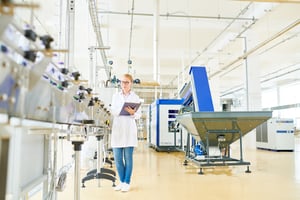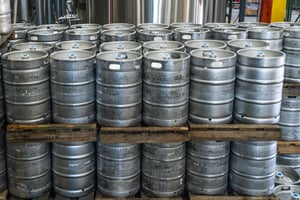Water resources everywhere are now under threat from climate change. That is true not only of water quantity, but also water quality. In their response to this increasing level of water stress, the authorities are imposing more and more restrictions on water. So industrial water users must find solutions to significantly reduce their consumption. Reuse would appear to be one of them. But unfortunately, the possibility of using this solution is circumscribed and restricted in some respects.
 For example, the French departments of Nord, Cher, Isère, Lot and Morbihan all introduced water restrictions in summer 2020. Industrial companies were encouraged to reduce their water abstraction and consumption levels, with particular emphasis on introducing new practices, such as the recycling of cleaning water.
For example, the French departments of Nord, Cher, Isère, Lot and Morbihan all introduced water restrictions in summer 2020. Industrial companies were encouraged to reduce their water abstraction and consumption levels, with particular emphasis on introducing new practices, such as the recycling of cleaning water.
From the same perspective, reuse solutions also give these companies the opportunity to reuse their wastewater after treatment. These are widely used in some sectors of industry for what are called utility applications, such as boiler feed water or cooling towers, for example. In France and at the wider European level, the reuse of industrial wastewater remains unregulated at present; nevertheless, a number of legislative texts effectively encourage its development. The ultimate goal of reuse is to reduce the environmental footprint of human activity and protect what are becoming increasingly scarce water resources as climate change takes hold.
Regulation of reuse in France
In France, the reuse of treated urban wastewater has been permitted in recent years for agricultural applications and landscape irrigation. But it is the Law of February 10th, 2020 Regarding a Circular Economy and the Fight Against Waste that introduces the application of a decree paving the way for expansion of these practices to include other types of water, including industrial effluents. So since the publication of this decree, experimental water reuse projects of up to 5 years may be implemented at the prefectorial (departmental) level.
However, this decree still prohibits water reuse in all sectors of the food industry. Despite the fact that these sectors are severely impacted by water stress, this exclusion even includes water used for cleaning purposes. The text of the French decree refers to the French Public Health Code and European Regulation on the Hygiene of Foodstuffs (2004), which requires companies to guarantee that the water they use is the highest-possible quality, is free from all microbiological contamination, and poses no threat to human health.
The specific status of food industry sectors

Some of our European neighbors have already taken the plunge. Experimental projects to explore the use of treated wastewater in beer production are underway in Sweden and the Czech Republic.
The same is true in Belgium, where a brewery now has permission to use treated water from its own the wastewater treatment plant.
Rather further from home, a similar experiment is underway in Canada. Brewing is a particularly water-intensive industry, with estimates suggesting that it takes 300 liters of water to brew one liter of beer. Seen very much as a pioneer in this respect, the US State of California is already promoting the more extensive use of water recycling in the drinks industry.
However, French food companies must still implement a demanding and time-consuming Hazard Analysis Critical Control Point (HACCP) methodology. This is a voluntary option for food industry water users, and the measures proposed must be individually approved by the DREAL (Regional Directorate for the Environment, Planning And Housing), regional water agency and the ANSES (Food, Environmental and Occupational Health & Safety Agency) before they stand any chance of prefectorial authorization at departmental level. A real obstacle course!
Want to know more?
Read our guide!
